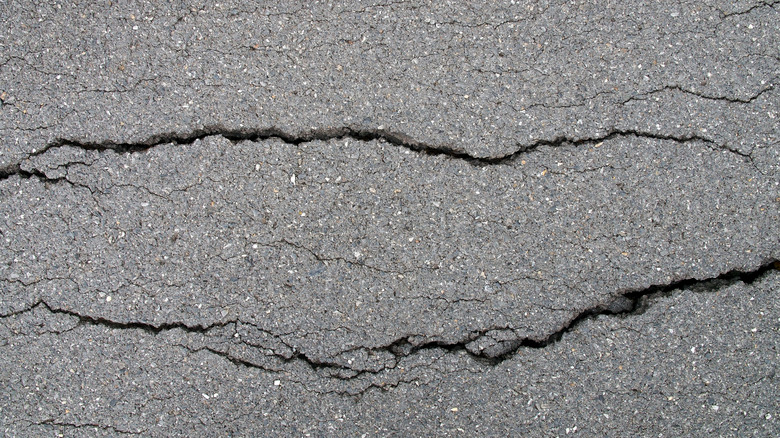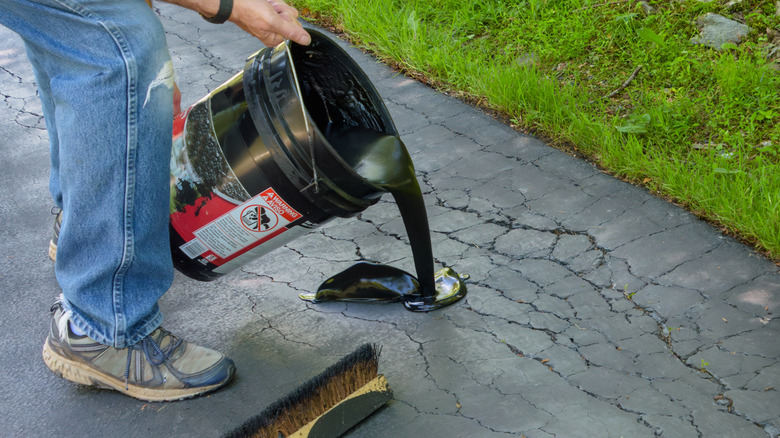The Quick Water Test That Helps You Know How To Fill Cracks In Your Driveway
Asphalt and concrete driveways are by far the most popular choice for U.S. homes, combining affordability with durability. However, while there is an essential task that can help prevent a driveway from cracking, temperature fluctuations, heavy loads, or age can eventually mean the surface will start to break up.
Without treatment, those cracks are sure to get wider. So if you want to avoid the cost of paving a new driveway, you'll need to act fast. There are plenty of filling and sealing products at your local DIY store, but some are for shallow cracks, and some are for bigger problems. How do you choose which one to buy?
Thankfully, there's a quick water test that will give you the answer you're looking for. All you need is a small bottle or a jug. Pour a little water in the crack and watch what happens. If the water runs away quickly, the crack is probably quite deep — it needs to be filled with an asphalt leveling patch. If the water sits on the surface, the crack is shallow, and a liquid filler can be used. These instructions are for an asphalt driveway, but equivalent products exist for concrete.
What the water test doesn't tell you about filling cracks in your driveway
Filling cracks in your driveway is quick, easy, and doesn't cost a lot. With that being said, however, it's still important to prioritize preparation if you want long-lasting results. Cracks should be cleaned with a stiff broom or brush, and any loose debris should be cleared away before applying the repair product. If it's a deep crack, the filler should be injected with a caulk gun. If you only use a trowel, it's unlikely to penetrate deep enough. It's also important that the crack is completely dry, or the product won't stay put.
Some contractors warn against the use of crack fillers on asphalt, as this kind of repair may only last a few months. Professionals typically use melted, rubberized crack filler, which is more durable than other options. To apply it, they use a torch or heat lance to heat the asphalt around the crack and a crackfill melter for the filler. Rental shops may have similar equipment available for hire to DIYers, but they could be dangerous in inexperienced hands.
So while the water test can be useful to tell you how deep the cracks are in your driveway, if they're anything more than superficial, you might want to consider calling in the experts. If it needs patching all over and recoating, then you might want to consider more eco-friendly options to repave your worn-out driveway instead.

